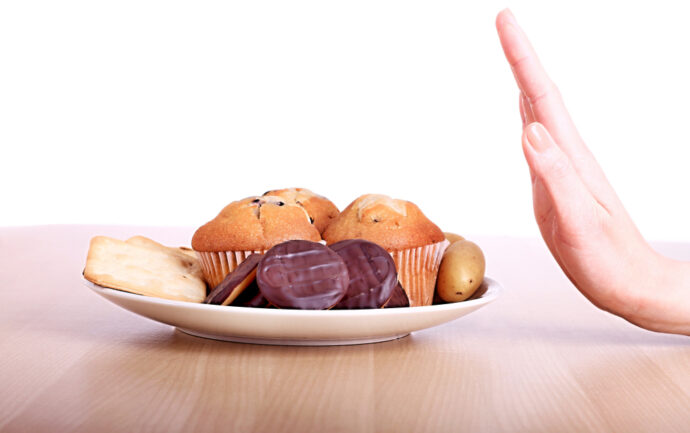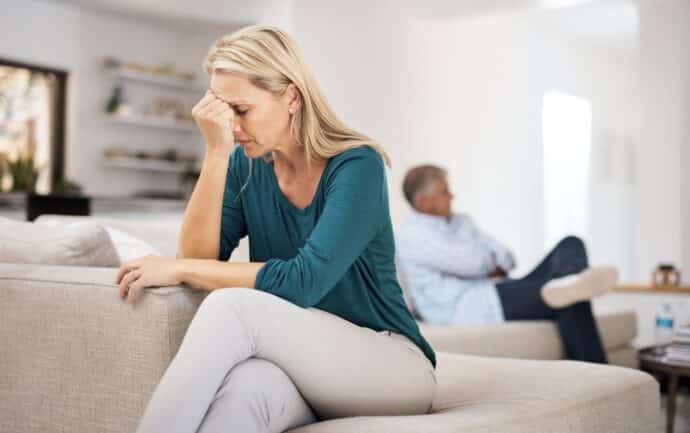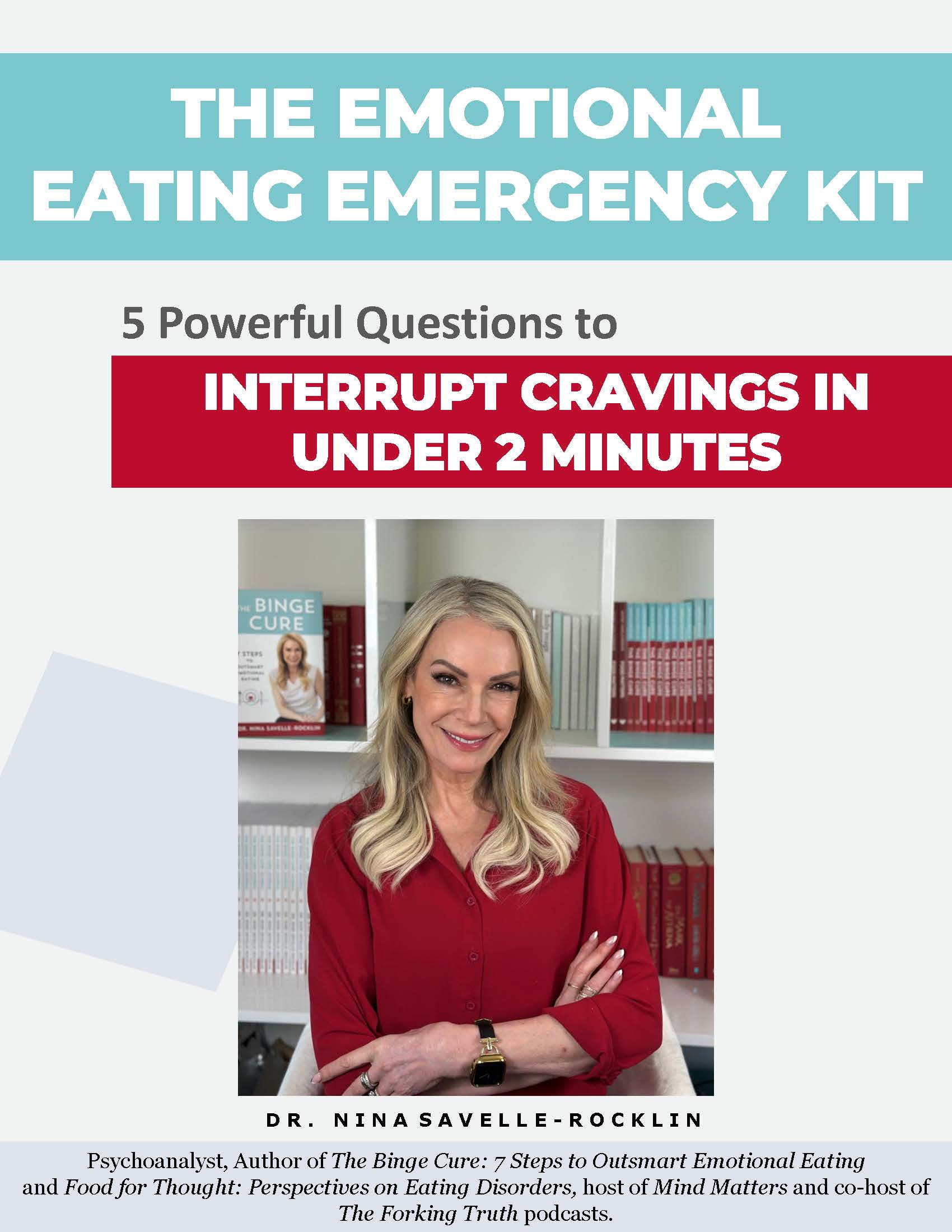Dr. Nina Savelle-Rocklin
What do you need to know about Anxiety and Binge Eating?
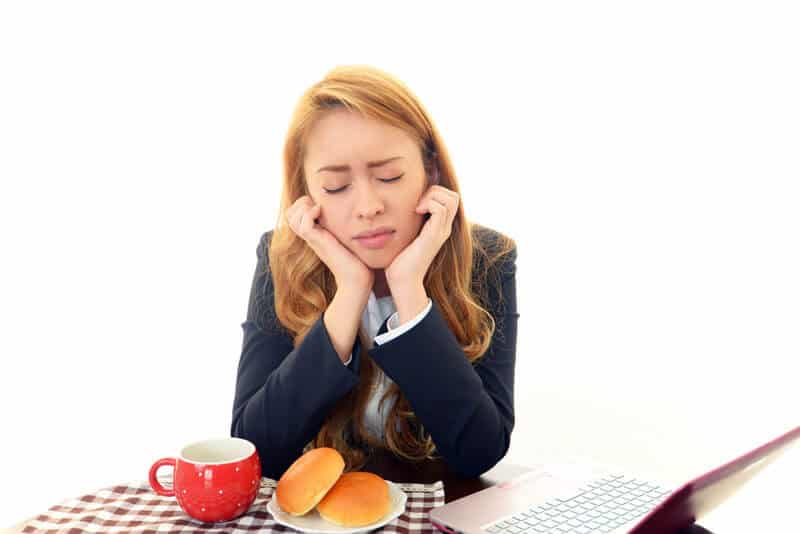
Do you tend to binge when you’re anxious? If so, you’re not alone.
According to the National Institute of Mental Health, anxiety disorders affect 18.1% of adults in the United States (approximately 40 million adults between the ages of 18 to 54). Although anxiety is very treatable, only 36% of those with anxiety actually seek treatment.
What is anxiety?
Anxiety is the body’s reaction to stress that triggers our fight, flight, or freeze response.
When we sense immediate danger, our bodies react instinctively. If the anxiety persists, it becomes counterproductive and may create emotional and physiological challenges.
It can take less and less of a trigger to create the anxiety, which leads to being in a chronic state of anxiety. For many people struggling with binge eating disorder, bingeing is a way of managing anxiety. Eating a large portion of food in a short time, especially food with a lot of carbohydrates, can have a calming or sedative impact on our bodies.
We eat to calm down, but then the guilt and shame about bingeing, as well as worries about gaining weight, leads to more anxiety. And then the cycle continues.
Why treating anxiety is important
Anxiety can be a trigger for binge eating, and it’s important to treat the underlying states that create bingeing. Binge eating can be a way of managing anxiety, albeit one that is ultimately more harmful than helpful.
Not only is it important to address anxiety for psychological relief, but there are also physiological benefits as well. Harvard Health states: “Evidence suggests that people with anxiety disorders are at greater risk for developing a number of chronic medical conditions.”
Some of the common medical problems that may be related to anxiety include:
- Respiratory Conditions, such as asthma and COPD
- Gastrointestinal Conditions, such as IBS and ulcers
- Heart Disease
- Substance abuse and addiction
- Migraines
Why am I so anxious?
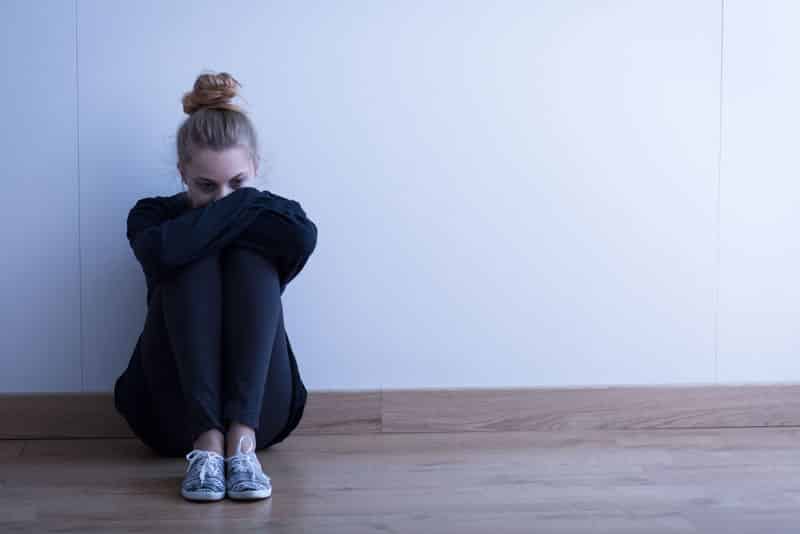
Anxiety is a response to a situation, or to thoughts and beliefs that cause fear and worry. Some researchers believe that trauma, child abuse and neglect, poverty, and other life experiences may make some people more susceptible to anxiety.
Others believe that some people are born with a central nervous system that processes things differently and that people with this type of nervous system reach a level of saturation more quickly. It takes less of a trigger to create anxiety.
When most people get anxious their stress hormones return to their pre-stress levels in 20 minutes. The symptoms of anxiety resolve as their hormones subside–unless a person has an anxiety disorder. For anxious people, the return to previous levels is outside the normal limits and can linger for two hours or more, so symptoms of anxiety are present most of the time.
What steps can I take?
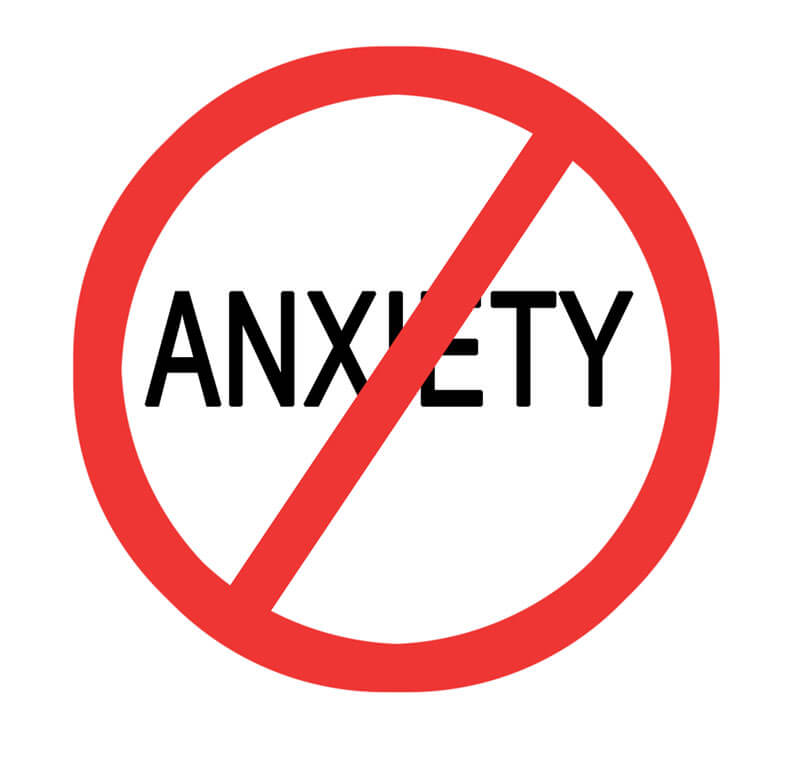
One way you can manage anxiety is to challenge thoughts such as these:
- What if I never lose weight?
- What if that person doesn’t like me?
- What if I can’t pay my mortgage?
- What if things never change?
Those are all “what IF” fears about the future, and they cause anxiety in the present. That means you end up being scared about some future event that is not actually happening.
The antidote is to stay with “what IS” and only consider the present reality and what you know to be true right now. When you stay with that, you will be calmer and more at ease, and less likely to turn to food. That sounds like:
- I’m working hard to address the reasons I turn to food
- I don’t know what that person thinks of me. Let me think about what I think of them.
- I can pay my mortgage now, and if I have trouble in the future I am resourceful and will come up with a solution
- I am continuing to evolve and I can create changes in my life
Words are powerful and are more helpful in resolving anxiety than the temporary solution of binge eating. When you reassure yourself, your anxiety will diminish, and you’ll feel calmer and better able to deal with various aspects of life.
If you would like more information and guidance about breaking free from binge eating, please join my Facebook community and get tips on how to escape food obsession and guilt and create a life of freedom, liberation and self-love.
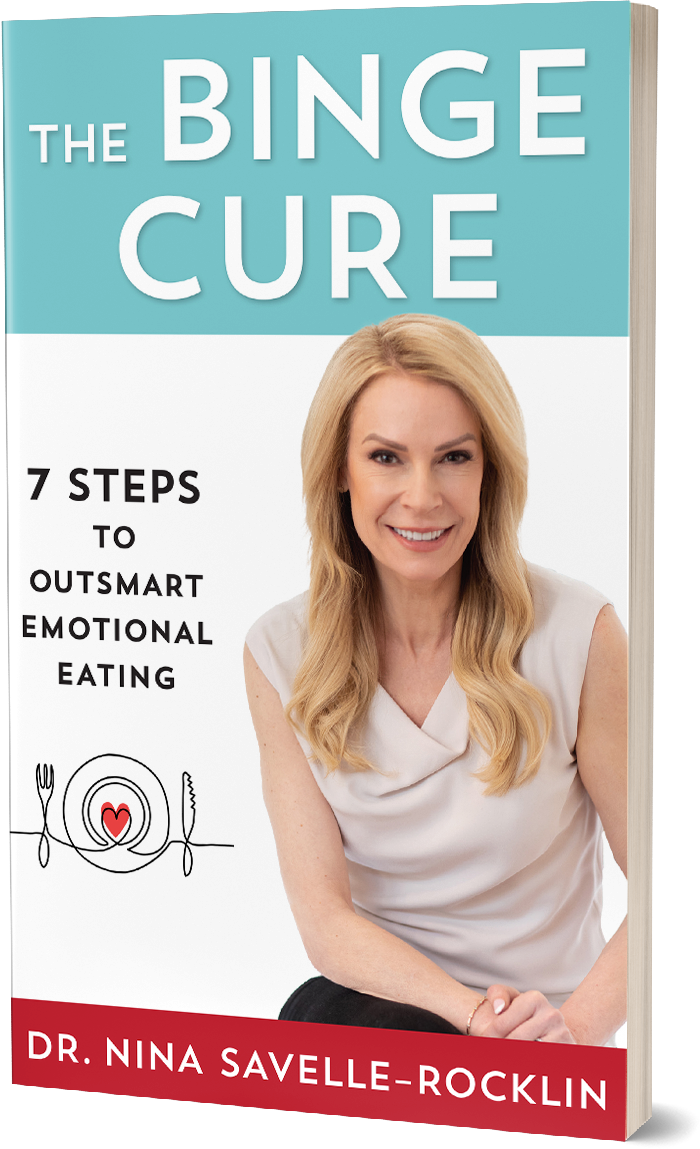
Sick of obsessing about every bite?
GET THE CURE
The Binge Cure Book!
Enter “CURE” to receive a 20% discount.
I’d love to conquer binge eating by ordering Dr. Nina’s book, The Binge Cure!
No, I don’t want access to this terrific resource to help me overcome binge eating.
The Author

Dr. Nina Savelle-Rocklin is a renowned author and podcast host and one of the nation’s leading psychoanalysts known for the psychology of eating. Her signature message of, “It’s not what you’re eating, it’s what’s eating ‘at’ you” has resonated with hundreds of thousands of listeners from around the globe in 40 countries. As founder of The Binge Cure Method, she guides emotional eaters to create lasting food freedom so they can take back control of their lives and feel good in their bodies.
Related Blogs




